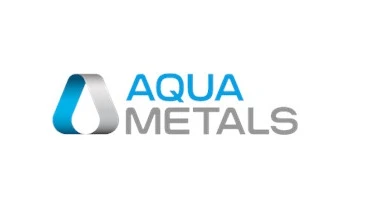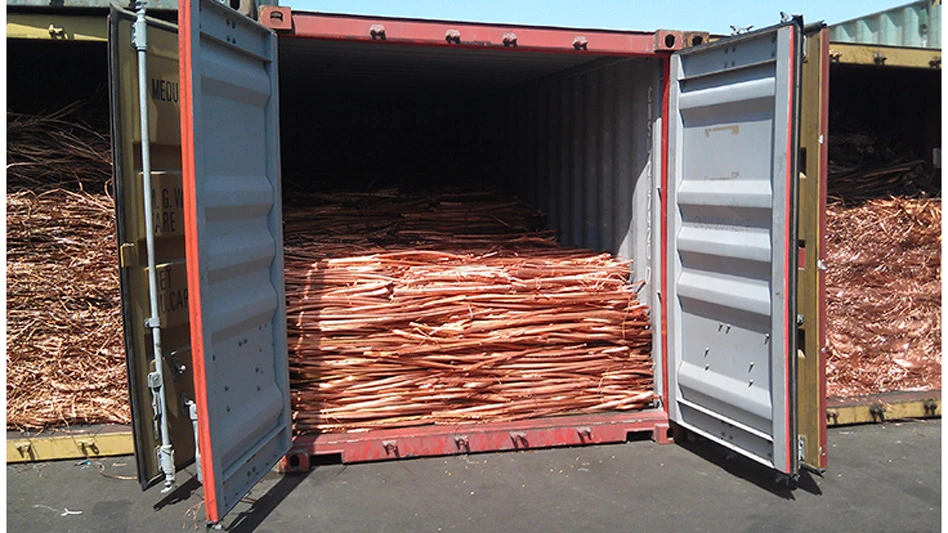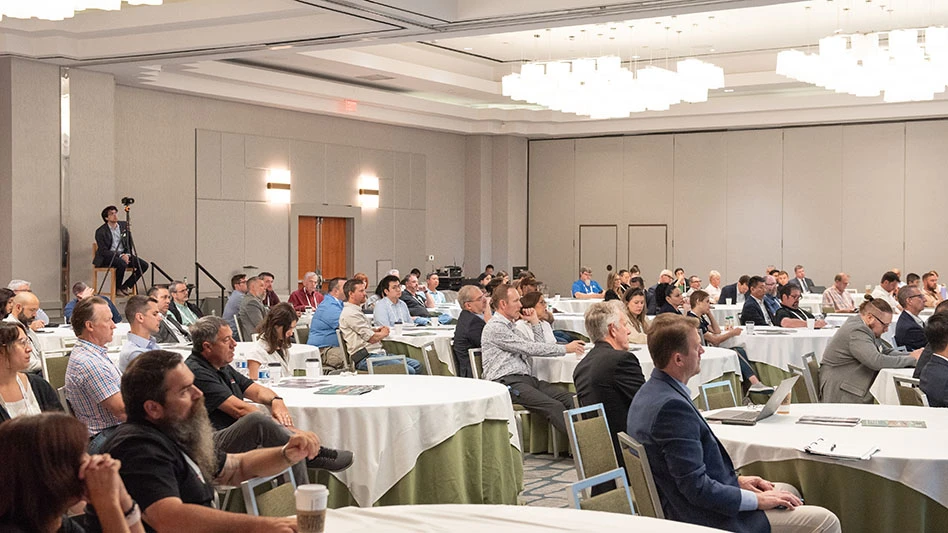From its office in East Hartford, Conn., Oakleaf Waste Management helps oversee the fate of tons of solid waste and scrap materials, all without deploying a single truck, baler or compactor.
Instead, the company has established its own management outsourcing model as a service to retailers, distributors and other generators of steady streams of garbage, old corrugated containers (OCC) and other recyclable materials.
|
|
Oakleaf’s service goal for its customers, says its President and CEO Jim Barnes, "is to make life simple for them" when it comes to the waste and recycling aspects of their businesses.
AN EASIER WAY. An operating premise of Oakleaf is that a range of corporations—including manufacturers, retailers and the distributors in between—do not have as a core mission the management of their waste and scrap.
According to Barnes, many of the executives and managers who outsource their waste and recycling management to Oakleaf "are already wearing a multiple number of hats." He adds, "We can manage this aspect of their business nationwide without them expending their resource of time."
The premise is one that has been rapidly accepted, as Oakleaf has quickly grown to a company of some 450 employees operating both from East Hartford and other offices.
The roster of client companies is impressive and wide-ranging and includes such national and multi-national firms as GE, The Home Depot, Sears, United Technologies, PepsiCo/Frito Lay, The Gap, TGI Fridays, Albertsons, Arby’s and World Market.
The company’s retail presence expanded greatly in 2006 with the acquisition of International Environmental Management (IEM), Roswell, Ga., in August of that year and Valet Waste Inc. of Tampa, Fla., in January of 2006.
IEM specializes in servicing shopping malls. "That is the sole focus of their business, and they have grown to serving more than 300 malls," notes Barnes.
Valet Waste, on the other hand, provides management services to multi-unit residential properties and developments, with more than 90,000 residential units served in several states.
While the acquisitions have been one source of growth, Oakleaf has also been expanding its own roster of clients and its menu of services. As scrap materials have grown in value and companies have taken environmental stewardship more seriously, a lot of that growth has occurred in the recycling segment.
On the home page of Oakleaf’s Web site (www.oakleafwaste.com), the introductory text states, "We earn our keep by helping you reduce, divert and monetize your waste flow and by helping you meet your environmental goals. We’ll provide you with a complete turn-key solution, from evaluation and design to implementation and management. With Oakleaf, you’ll produce less trash, pay less to haul it—and you’ll put up with fewer hassles along the way."
On the recycling side, added value is being created by Oakleaf’s Recycling Services division, according to Barnes.
While the recycling of OCC and some other established secondary commodities is a given at most locations, the Recycling Services division led by Perry Moss conducts sight surveys and audits to help Oakleaf customers maximize their ability to recycle. "The goal, every time, is to divert as much material as possible from the waste stream," declares Moss.
BOTTOM LINE DECISION. The outsourcing of waste management provides clients with a service that saves them management time and energy. Increasingly, though, the ability to identify recycling opportunities provides a significant bottom line difference that lets Oakleaf become an even more valuable business resource.
Both bottom-line and corporate stewardship reasons have prompted Oakleaf to pay a greater amount of attention to recycling since the company’s inception in 1995. "More and more, customers are looking for opportunities to recycle—no question," says Barnes. "OCC is definitely the largest category we have," he adds.
Both Barnes and Moss point out that recycling is taking on new forms at Oakleaf. "OCC certainly remains the bulk of what is in our customers’ waste streams, but we go a lot deeper," says Moss. "We look at plastics, metals, wood—you name it. If there is a market out there, we’ll try to pull it out," he adds, noting that the company will soon announce a service to address the organics recycling stream.
A number of efforts, including deployment of devices such as the Tire Shark and the Pack-A-Drum (see sidebar on p. 52) and the activities of the Recycling Services division, are broadening the recycling focus.
Moss is a veteran of Smurfit Stone’s recycling division. Under his leadership, the Recycling Services division of Oakleaf Waste Management has grown to become a team of several people throughout the country performing site audits. "In the last several months, we have added more resources in the form of personnel to the recycling group," says Barnes.
Pallet wrap and other plastic packaging material has become one growing recycling segment, but the site audits can yield a number of benefits. "We still hear that customers did not know that a given material was recyclable," says Barnes. "A lot of times, before the audit, they are simply combining it with the waste stream."
Although the word "waste" is in their company name, Oakleaf has a bias toward recycling, says Barnes. "We want to divert as much of that material as possible," he remarks. "We don’t own a landfill, so we’re not motivated to fill up that landfill."
The predominant reason that Oakleaf encourages its customers to recycle: "I can save them money," says Barnes.
Increasingly, though, corporate green initiatives are also prompting greater interest in recycling. "For years, customers were primarily focused on recycling when they could reduce their costs," notes Barnes. "If it cost them anything additional, they were not likely to do it. Now many are willing to spend more to get recycling done at different levels."
Cumulatively, such behavior can benefit both recyclers and the generators
|
Paper Profits |
|
An impressive example of the ability of Oakleaf Waste Management, East Hartford, Conn., to maximize recycling revenue involves the case of paper distributor Xpedx. The Loveland, Ohio-based paper supplier generates large quantities of scrap paper, cardboard and plastic. When Oakleaf conducted its site audit at Xpedx, the existing recycling contractor paid only flat-fee rebates for recyclables. The recycler also deducted truck rental and transportation fees and did not offer the ability to recycle a full range of commodities. Additionally, union workers on site were resistant to any change in their current process, according to Oakleaf. Oakleaf’s site survey addressed the different grades of paper and their respective market values as well as the potential for plastic recycling. Oakleaf negotiated rebates based on the value of each material and arranged to recycle additional commodities that had previously been disposed of. The placement of recycling bins in offices and training the office cleaning crew yielded a new flow of material. And old, weary balers were replaced with new, more efficient ones, including Pack-A-Drums for shrink-wrap. The bottom line results, according to Oakleaf: a 10 percent reduction in service expenses and an astonishing 644 percent increase in recycling revenue; Xpedx reduced its net annual expense on waste by 74 percent. |
NETWORK NEWS. On both the solid waste and recycling fronts, Oakleaf accomplishes what it does not by owning trucks and compactors, but rather by working with existing waste hauling and recycling companies.
Barnes acknowledges that approaching haulers and recyclers could be a complicated endeavor initially. "When we first started, it was difficult to communicate our value proposition to the hauler," he remarks.
"Money talks," says Barnes bluntly, and Oakleaf’s ability to hit $460 million in the annual sales column—as well as its backing by New York private equity firm The Charterhouse Group—has allowed haulers to have faith that a contract with Oakleaf is a stable one.
Oakleaf’s market share in the commercial solid waste business has met and surpassed national companies such as Allied Waste, according to Barnes. That amount of market share has been achieved "without the physical assets," Barnes notes, which means Oakleaf relies on a stable network of haulers and recyclers.
|
Sharks and Drums |
|
Sponsored Content Still relying on manual sorters?Let AI do the heavy lifting. Waste Robotics delivers reliable, high-performance robots tailored for complex waste streams. They require minimal maintenance, are easy to operate, and are designed to boost your recovery rates. Smarter sorting starts with the right partner. Waste Expo Booth #1969 & REMA #2843 Click here to see our robots in action!The expansion of Oakleaf Waste Management, East Hartford, Conn., into recycling endeavors beyond established practices like recycling cardboard has involved several innovative programs. For major retailers such as Pier One, recycling pallet wrap and other plastics has been made easier with the Pack-A-Drum. The manual-powered compactor plunges down light plastics to make a "nice, dense" bale of recyclable plastic, says Oakleaf CEO Jim Barnes. He notes that more material can thus be stored on site and fewer recycling pickups will be necessary. Customers in the retail tire business or who otherwise generate scrap tires have benefited from using The Tire Shark, a patented, hydraulically based tire compactor that takes scrap tires and punctures and crushes them to one-third of their original size. "The Tire Shark is a prime example of how one product can have such far reaching and positive effects not only for businesses, but also for the environment," says Perry Moss, senior vice president of the Recycling Services Division of Oakleaf. The Tire Shark makes sound economic sense for any facility that stores discarded tires, since hauling appointments become less frequent, according to the company. The device also punctures tires thoroughly, eliminating the chances that such tires are sold as untested or uncertified used tires. One national retailer is using the Tire Shark to prepare scrap tires for processing, and then receiving back from the processor colorized rubber mulch made from the same tires. "We have truly helped this company close the loop," says Oakleaf Senior Vice President of Recycling Services Perry Moss. "It’s a big priority for this company’s sustainability initiative." |
What Oakleaf can offer to its network members, says Barnes, is the promise of more business. "I can offer volume and route density."
On the recycling side, "We’re not viewed as core competitors," Moss says of the relationship with sub-contracting recyclers. "Frankly, they view us as a source of supply," he adds.
Oakleaf keeps its list of network haulers and recyclers confidential, says Barnes. He indicates that the names would be recognizable to those familiar with the solid waste and recycling industries.
As with the previous years, 2007 has been shaping up as a good growth year for the company. Barnes is optimistic about the year overall. Further acquisitions are possible, he notes, but even without them he foresees "something in the area of 20 percent growth in our core business."
As a business model, the Oakleaf premise has now proven itself to its private equity investors, to its customers and to its network of haulers for 12 years, making Barnes optimistic in the near and long-term. "I think overall what we’re expecting is some significant growth."
The author is editor in chief of Recycling Today and can be contacted at btaylor@gie.net.
Get curated news on YOUR industry.
Enter your email to receive our newsletters.

Explore the August 2007 Issue
Check out more from this issue and find your next story to read.
Latest from Recycling Today
- APR, RecyClass release partnership progress report
- Clearpoint Recycling, Enviroo sign PET supply contract
- Invista expanding ISCC Plus certification program
- Redwood partnership targets recycling of medium-format batteries
- Enfinite forms Hazardous & Specialty Waste Management Council
- Combined DRS, EPR legislation introduced in Rhode Island
- Eureka Recycling starts up newly upgraded MRF
- Reconomy Close the Gap campaign highlights need for circularity










